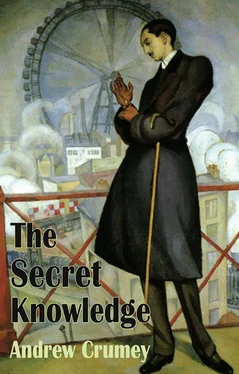The venue is a provincial town hall, the concert an item in the annual local arts festival. Why was David Conroy invited to perform? Probably because among the better known pianists the organisers tried first, none were available, or all were too expensive. He didn’t think of it while playing, the music mattered more to him than thoughts of his declining career, but standing beside the instrument to acknowledge applause for the final piece in his recital, he senses the disappointment of people who would have preferred tunes they already knew, played by someone whose name they recognised.
He walks from the stage and the clapping continues; they’ve paid good money and expect an encore, though some have trains to catch or restaurant tables waiting; he can see figures leaving while he returns and sits to give the obligatory bonus feature, Liszt’s Églogue providing an envoi as civilised and unambiguous as coffee and mints. Departing the platform once more he is congratulated in the wings by the young female assistant who has gauged the diminishing ovation and politely shows him back to his dressing room.
He’s not yet fifty but feels too old for this. Sitting alone in front of the mirror’s tired reflection he checks his phone, there’s a text from Laura, she hopes the tour is still going well. Tour is too grand a word for the three engagements that have taken him out of his college routine for a week. The truth is that he no longer tours, or records; the prize-winning rising star of three decades ago turned into a disappointed teacher who does occasional performances like this, off-circuit, low fee, barely more dignified than a church-hall vanity concert. Laura’s text is concise, impersonal, the sort of thing she could have sent to one of her journalist colleagues. Their last interaction before parting was an argument about the fridge.
A knock on the dressing-room door, it’s the assistant, Tiff. Bubbly and petite, she has immaculately bobbed hair and the limitless enthusiasm of someone at the beginning of what she considers a career. When she introduced herself earlier in the day she said she would be “handling things”, and he said it would be a pleasure being handled by her. They both laughed.
Tiff has brought a few autograph hunters; two elderly ladies are shown in, enveloped in floral perfume and dressed smartly for their evening out. One has a limp and uses a walking stick, the taller is mannish with a wispy moustache. Both thank Conroy lavishly for his wonderful performance while he signs their programmes. “I particularly enjoyed the Beethoven,” says the limping one, with the confident benevolence of a parish organiser. “Though I wasn’t so keen on the modern piece.” She means a suite by Luigi Firelli composed more than half a century ago, Conroy has always liked to include some twentieth-century repertoire, especially if the composer is unknown. Schoenberg or Stockhausen will half box-office returns at a stroke; Firelli’s name is as obscure and innocuous as Conroy’s own.
“The Schumann was remarkably fast,” the taller woman announces, looking at her signed programme as though it were an application form. “He went mad, didn’t he?”
“Depression,” Conroy corrects.
“Obvious from the music that he must have been disturbed.”
The other interrupts to relate that she studied piano in her younger days, and on one occasion met Alfred Brendel, who was a family friend, and played Schubert for him, receiving great encouragement in return. So this is what she really came for, to share this piece of history that she can already see passing over the horizon of her existence. She wants the world to know that Alfred Brendel heard her play, liked it, and right now Conroy is the world. “Well done,” he says, an invitation to leave that both women accept.
At the open doorway Tiff stands with a pale, earnest-looking teenage boy, next in line, who comes and holds out a notebook open at a double-page, the left sheet bearing a bold illegible scrawl. He points to the empty right.
“Would you like a message, a dedication?” Conroy asks.
“Only a signature.”
It feels like checking in at the hotel earlier; Conroy wonders if the kid will want his car registration too. Just for the hell of it he tries making conversation. “I hope you enjoyed the music.” The boy says nothing, which Conroy takes as a no, so he tries a different line. “What are you studying at school?”
“I’m at university. Physics.”
“Really?” The surprise is that he’s old enough to vote, not that he should be studying a subject in which he need never talk to anyone. “Have you worked out what happened to Schrödinger’s cat?” This is pretty much the only problem of physics Conroy can think of, unless he asks if the kid knows how to fix fridges. He hands the book back.
“Schrödinger’s cat?” the boy says, almost scornfully, as if it were some elementary exam question. “I reckon we’re all inside the box.” He glances at the signature, closes the book and walks away.
That, thinks Conroy, is one reason why he was never cut out for this line of work — having to be nice to pricks just because they bought a ticket for the show. It looks like he’s already reached the limit of his fan base for the night but then Tiff reappears with a final visitor, a plump, balding man in his thirties, jacket and tie, polite handshake, the air of a scholar, and when he compliments Conroy on his rubato, the welcome voice of a genuine connoisseur. “I particularly enjoyed the Firelli,” he adds unexpectedly. “In fact it was why I came, I have a special interest in twentieth-century music, rather a large collection.”
“Of recordings?”
“Scores, first editions, some manuscripts.”
This is an agreeable surprise. Both of them, it transpires, are interested in “minor” composers, though it is a term neither of them cares to use, their interest being premised on the denial of such facile pigeonholing. They trade a few names; Timman’s Rembrandt Sonata is one the collector knows, in fact from Conroy’s own recording of it made fifteen years ago, likewise Hessel’s Tapestry , though DuFoy’s Prolegomena is as unfamiliar to him as Dagmann’s Little Studies . “How about Edith Sampson?” the collector counters, explaining she was a Manchester schoolteacher who produced as many as five hundred works including an opera and several symphonies, all unpublished and probably never performed, which he bought for fifty pounds from a junk shop, the price having mainly been for the trunk they were in. Conroy hasn’t heard of her, nor the next name he is offered, a fusion of French and German whose second half rhymes with flower: Pierre Klauer.
“You have his manuscripts too?”
“Only a piano work. Quite remarkable, I think. Perhaps it might interest you.”
Conroy detects that the collector is actually a dealer; their conversation is in danger of becoming a business transaction. “If you’re looking to sell it…”
“I could send you a photocopy, I’d value your opinion. I believe he died young.”
“How?”
“I’m still trying to find out. The piece is a mystery, too. I take it to be a sonata but on the title page it’s called Le Savoir secret .”
The Secret Knowledge : an attractive name. For a moment Conroy fancifully imagines a come-back performance at the Wigmore Hall, a newspaper headline about a rediscovered masterpiece. “Do you have a card?”
The collector brings one from his wallet, bent and bruised from having been carried around too long. Conroy, lacking his reading glasses, holds it at a distance to see the name. “Claude Verrier. French? You don’t have an accent.”
Читать дальше











